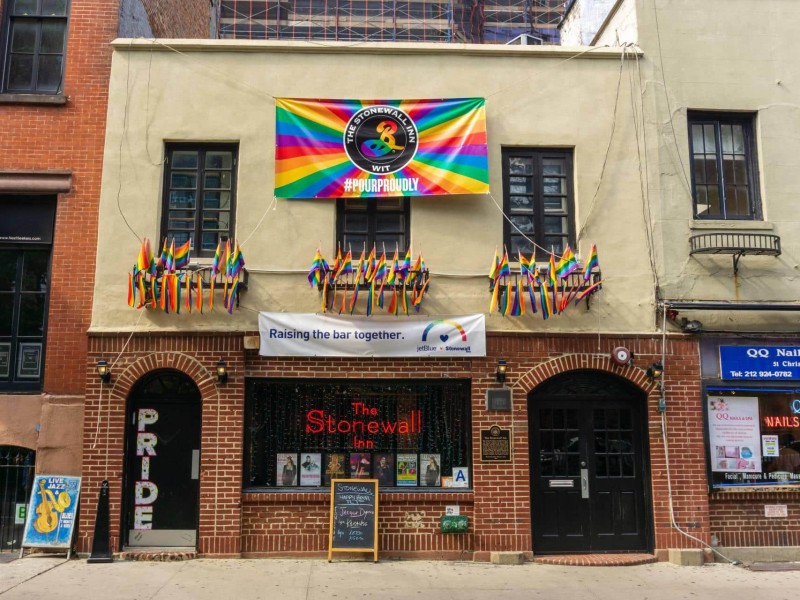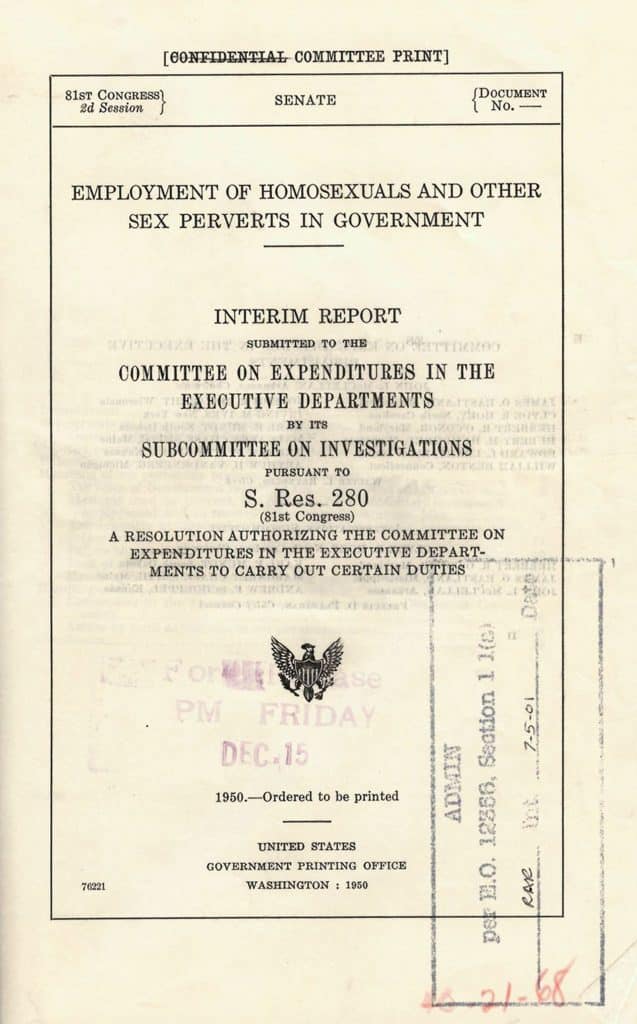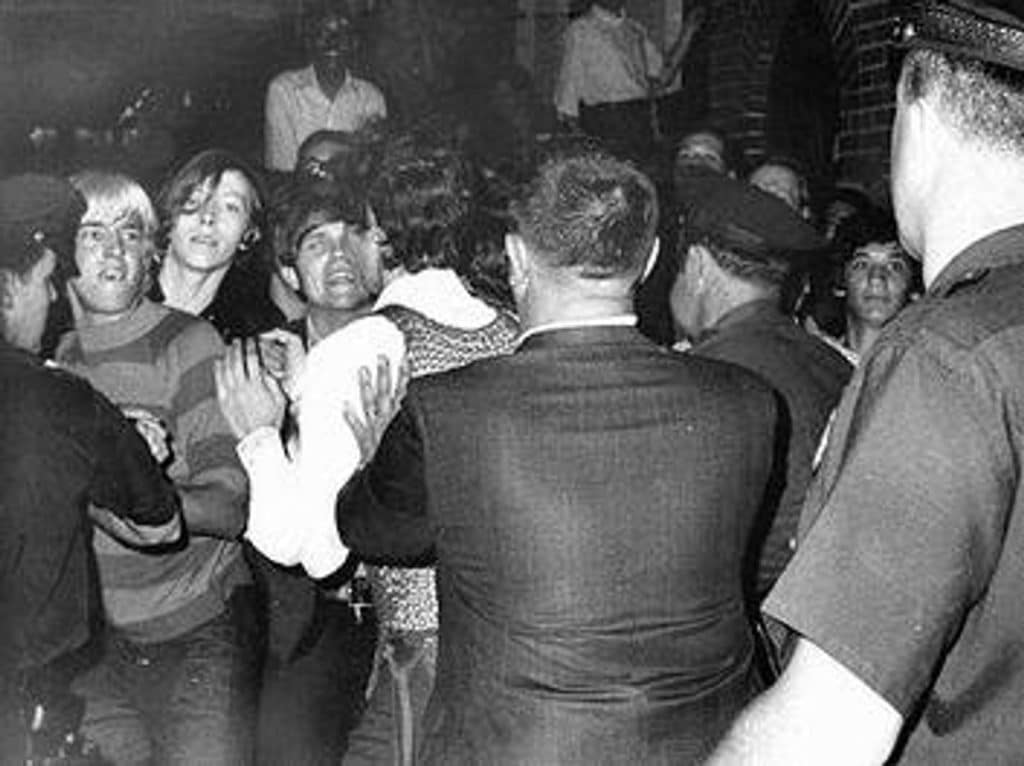The First Pride Celebration Was a Riot – With Trans Women of Color Leading the Charge
It’s Pride Month, but if you look beyond the vibrant logos and corporate campaigns, there’s a forgotten history of ruthless homophobia and the many brave individuals who stood up against it.

June 1st marks the beginning of Pride Month, a time to celebrate the LGBTQ+ community. Every year we scroll through our feeds and watch as corporations change their plain logos to everything rainbow, but what can we learn about Pride besides what corporation wants a piece of our pride dollars? Why is Pride necessary, and why is it celebrated?
The Origins of Pride Month: A Legacy of Homophobia in the U.S.
It might look like everyone’s on board with an entire month dedicated to it, however, the inception of Pride and why we need to continue honoring the LGBTQ+ community because of it is a long story and is one that hasn’t ended.
After World War II, we heard of the Red Scare. The Red Scare was a byproduct of anti-communist sentiment in the U.S. following World War II that led to the prosecution of hundreds of people accused of being communists.
Lesser known but still prominent is the Lavender Scare – a time between the late 1940s and 1960s when potentially or out gay employees were targeted for their sexuality and forced to give up their jobs within the federal government. The Lavender Scare happened in response to the widespread panic inspired by the rise in same-sex relationships across the country, with Republican Senator Joseph McCarthy leading the charge – the same McCarthy that terrorized everyday people with accusations of being communist sympathizers.
McCarthy is quoted as saying, “Homosexuals must not be handling top-secret material. The pervert is easy prey to the blackmailer.”

By equating homosexuality and communism, McCarthy managed to connect the American fear of communism with bigotry against homosexuality. By justifying the fear through his speeches, McCarthy’s hateful agenda to oust members of the gay community from the federal government became a full-blown panic. A full report was released in December 1950 on the “Employment of Homosexuals and Other Sex Perverts in Government” by the Hoey committee, outlining how anti-gay hiring practices would protect both the federal government and public service.
Given that homosexuality was illegal in almost every state until the early 1980s through anti-sodomy laws, McCarthy’s legacy of anti-gay rhetoric led to the mass resignation of gay employees. Their employers often intimidated these employees into leaving their roles or were directly laid off, dubbed “security risks” thanks to their sexual orientation.
States used anti-sodomy laws in different ways – from limiting gay people as parents with rights to their kids, denying them jobs, and not allowing them to exercise free speech. These laws only began to be struck down in state-by-state trials decades after their inception. Thanks to this, the gay community then retreated to living life “in the closet.”
Stonewall Riots: A Turning Point in the Fight for LGBTQ+ Rights

It was the 1970s when the Stonewall Inn served as a popular establishment for gay, lesbian, and transgender communities. Located in Lower Manhattan’s Greenwich Village, the Inn was a haven for the blossoming gay and trans community during a time when being a member of the LGBTQ+ community meant you had to find very specific places to live your truth.
Gay bars were often run by the mafia or explicitly used to lure community members out so their sexuality could be weaponized against them. They were frequently raided to prosecute patrons and generally weren’t regulated as legitimate bars due to the illegal nature of the conduct occurring inside. The Stonewall Inn wasn’t an exception, as it wasn’t regulated under fire code or registered as a bar (“bring your own booze” had a literal meaning here). Still, it did act as a hidden utopia for those in the gay community. With police paid off to tip the operators of Stonewall to let them know ahead of time of an incoming raid, the safe haven operated beneath the view of the city.
On June 28th, 1969, that changed. New York City police raided the Stonewall Inn without warning, and the six days of rioting against the police that followed launched what we now know as the Pride movement. The almost weeklong conflict quickly turned into the famous “Stonewall Riots” or “Stonewall Uprising,” which is now recognized as a pivotal point in the fight for LGBTQ+ rights.

Sylvia Rivera and Marsha P. Johnson are both notable activists that are some of the most prominent faces of the Stonewall Uprising, both trans women of color that went on after the uprisings to continue fighting for Black and Brown liberation, trans representation, and gay rights.
Sylvia Rivera was assigned male at birth, born to Venezuelan and Puerto Rican parents with the name Ray. After Stonewall, Rivera remained a prominent activist for gay rights but often was at odds with leaders since they frequently discouraged the participation and representation of the transgender community in their demonstrations. Though she is incorrectly credited with throwing the first molotov cocktail against police, Rivera set the record straight by saying she actually threw the second one.
Marsha P. Johnson was no different, with her move to New York City after high school allowing her to fully embrace her identity and rise as one of the top organizers for pro-LGBTQ+ rallies, meetings, and sit-ins. Both women have left a highly recognized legacy by the LGBTQ+ community as setting the stage for real advocacy and change.
Fifty years after the initial Stonewall Uprising, we remember the legacy of these brave women, who fought for a cause that gay leaders often excluded them from. Despite this, both Rivera and Johnson went above and beyond to fight for the collective good. Although their participation is celebrated today, at the time, they were not welcome in their fight for trans-representation, but their sheer will significantly contributed to the Pride we know today.
LGBTQ+ Rights Today: The Struggle for Equality Continues

It’s important to recognize that LGBTQ+ rights continue to be attacked today. The federal government has no formal protections against those being discriminated against, fired or refused a job because of their sexual orientation.
A decade ago, the US military repealed “Don’t Ask, Don’t Tell,” their harmful anti-gay policy, but the stigma against LGBTQ+ service members remains. Gay men continue not to be allowed to donate blood unless three months have passed since their last sexual contact with another man. This outdated policy is a result of the gay panic of the 1980s, where millions of LGBTQ+ community members died of HIV AIDS due to government inaction.
During this month, let us use this time to not only reflect on the treatment of everyone in the LGBTQ+ community historically but also engage in authentic advocacy. Without the codification of the Equal Rights Act that will make discrimination in any form illegal, not everyone is equal in the eyes of the law. All communities deserve to be treated with the decency and respect they deserve, year-round – and no amount of rainbows will change that without real action.




